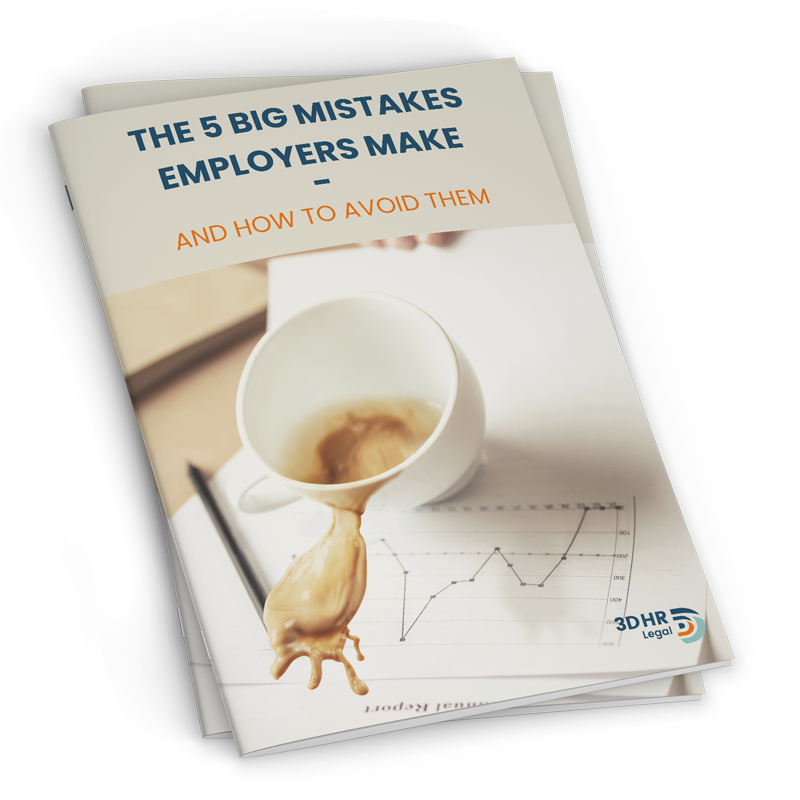As of 1 July the Australian minimum wage and award rates have pay have been increased. All employers need to conduct a review of their rates of pay to ensure they are meeting minimum requirements to avoid underpayment claims for wages or superannuation.
Minimum Wage Increase
This year the Fair Work Commission (FWC) announced its annual wage review decision to increase minimum award rates by 5.75%and the national minimum wage to $23.23 per hour (from $21.38 per hour). These increases took effect on Saturday, 1 July and need to be applied to the first full pay period after this date.
We recommend employers follow 3 key steps to ensure they are not underpaying staff after 1 July.
Step 1: Check you are applying the relevant modern award and correct award classification
When working out the correct minimum rate of pay for an employee you first need to know what award covers them.
Not all employees in each business are covered by the same award as award coverage will depend on the industry of the employer and also the individual occupation of an employee. For example, an employer in the construction industry may be covered by the relevant building award for their on site team, and the general clerks award for their office staff. If you have any doubt, now is the time to conduct an audit and review.
Each award also contains a number of classifications which have different minimum pay rates. A employee’s classification will depend on the requirements of their position, and potentially how long they have been performing the role. Employers must correctly classify each employee to avoid the potential for underpayments.
Step 2: Ensure at least the minimum wage is being paid
Whether you need to increase an employee’s wage/salary from 1 July 2023 will depend on how you are currently paying them. For example:
- If you are paying exactly the national minimum wage or award minimum – then these employees must have their pay increased to at least the applicable minimum wage;
- If your employee is covered by an enterprise agreement – the payrates must be reviewed to ensure they are equal to or above the applicable minimum including any penalties, overtime, allowances or loadings the agreement includes in each pay rate; and
- If you are paying above the applicable minimum wage – this may not be enough to avoid the need for a pay increase. Employers must review the individual circumstances of each employee to ensure they are better off overall by comparing their over award wages against the minimum wage plus applicable penalties, overtime, allowances or loadings that may be required in an applicable award. It may not be necessary to increase an employee’s pay but employers must satisfy themselves this is the case.
You also need to take into account whether you have any contractual obligation to increase wages for the new financial year that are contained in a contract of employment, enterprise agreement or other document.
Step 3: Communicate the change
Generally, you won’t need to issue new contracts if the only change is an increase in pay. In these circumstances a letter will be sufficient. If an employee’s award classification has changed, check the relevant award to see if there is an obligation to notify the employee of this in writing. If you haven’t already done so include this in the letter regarding the pay increase.
If other employment conditions have changed (e.g. the employee is in a new position) this may be a good opportunity to issue updated contracts that include the new rate of pay and any updated contract terms. In doing this, remember the obligation to pay at least the minimum wage from the first pay period after 1 July.
Superannuation
From 1 July 2023 employers must pay superannuation at the rate of 11% of an employee’s ordinary time earnings. This is part of the ongoing gradual increase in superannuation contributions which will finish at the rate of 12% in 2025.
Note: (a very advanced note) from 1 July 2026 employers will need to pay superannuation at the same time as wages.
High Income Threshold/Unfair Dismissal
The High Income Threshold also increases on 1 July to $167,500. This is relevant for award free or enterprise agreement free employees who cannot make an unfair dismissal claim if their annual rate of earnings is more than this amount.
It is also worth noting that in respect of unfair dismissal claims the maximum compensation cap increases to $83,750.
At 3D HR Legal we work with employers to ensure they are aware of and comply with their employment obligations to protect against employment related claims, including underpayments. Please contact us if you would like assistance regarding award coverage or determining appropriate rates of pay.


Recent Comments